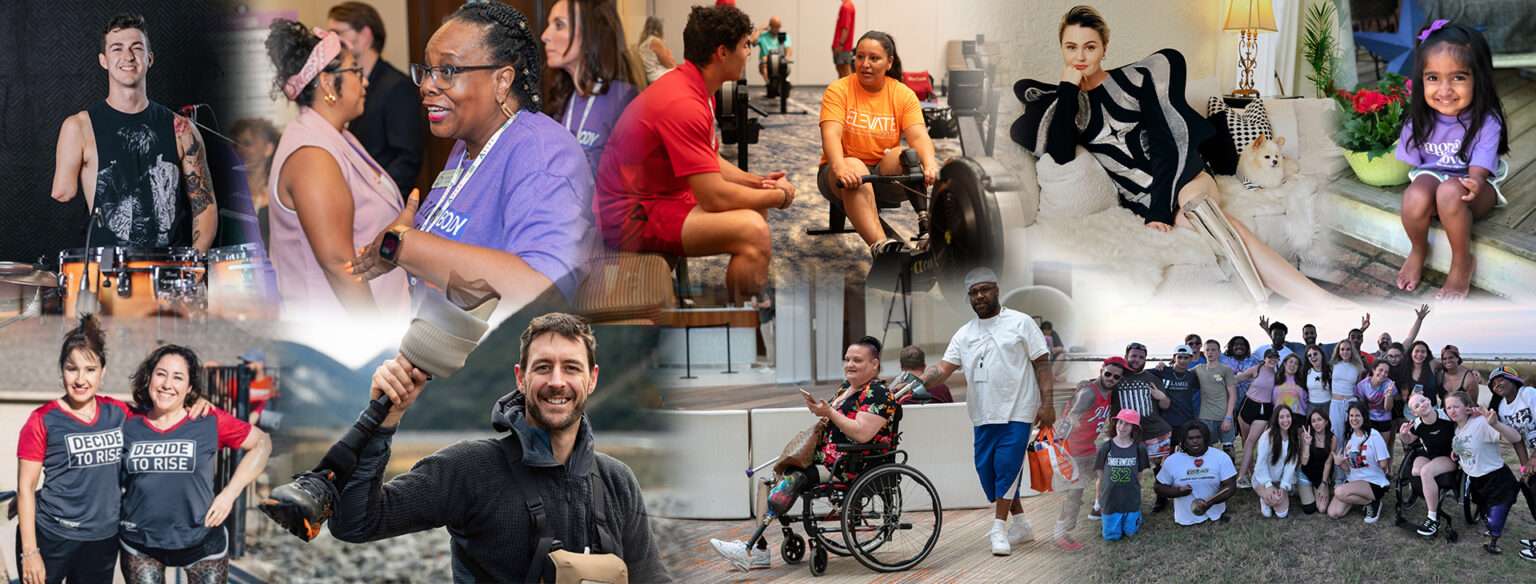Rebound O&P
Updated 7:52 AM CDT, Mon July 28, 2025
Published Under: General Prosthetics

Adjusting to life with a prosthetic limb involves far more than just physical healing, it’s also an emotional journey. Whether a person experiences limb loss due to injury, illness, or a congenital condition, it’s normal to face a wide range of feelings, from grief and frustration to anxiety and hope. At Rebound Orthotics & Prosthetics, we believe in supporting the whole person—body and mind.
The Emotional Impact of Limb Loss
Limb loss is a significant life event that can bring about emotional challenges that differ for everyone. Some common emotional responses include:
- Grief and loss: It’s natural to mourn the loss of a limb, just as one would grieve any major life change.
- Anger or frustration: Many individuals feel frustrated with their new limitations or the pace of recovery.
- Depression or anxiety: Changes in body image, mobility, and independence can contribute to mental health challenges.
- Fear about the future: Questions about returning to work, resuming hobbies, or navigating social situations are common.
These feelings are valid and deserve attention—not just for emotional well-being, but because mental health plays a crucial role in physical recovery.
The Connection Between Mental Health and Prosthetic Use
Studies show that individuals who receive mental health support after limb loss often experience better outcomes with their prosthetic use. Emotional well-being can improve motivation, promote consistency with therapy, and help patients feel more confident during the rehabilitation process.
A positive mindset doesn’t mean ignoring the hard days, it means having tools and support to navigate them.
Strategies for Coping
Everyone's experience is different, but here are some helpful ways to support your mental health throughout your prosthetic journey:
1. Talk About It
Open communication with loved ones, a mental health professional, or a support group can reduce feelings of isolation. You're not alone, and sharing your experiences can be empowering.
2. Set Realistic Goals
Setting small, achievable goals helps build confidence and momentum. Celebrate every step—whether it’s walking a few more feet or mastering a new task with your prosthesis.
3. Stay Active
Physical activity supports both physical and mental health. Your prosthetist and therapy team can help you find exercises that are safe and motivating.
4. Seek Professional Help
There’s no shame in reaching out to a counselor or therapist. Professionals who specialize in rehabilitation or trauma can offer helpful coping tools tailored to your experience.
5. Connect with Others
Peer support can be a powerful part of the healing journey. Connecting with someone who has experienced limb loss can offer not only practical tips, but also encouragement and a real sense of belonging.
Organizations like the Amputee Coalition, a national resource, provide opportunities to connect with others through support groups, mentorship programs, and educational tools. Their mission is to “support, educate, and advocate for our community so that everyone impacted by limb loss and limb difference has the resources, connections, and opportunities to thrive.”
Closer to home, Wiggle Your Toes is a Twin Cities-based nonprofit dedicated to empowering individuals with limb loss or limb difference. They host events, community activities, and offer support to help individuals take action and get back to the life they want.
Whether it’s through national organizations or local connections, finding community can make a big difference in both emotional healing and long-term recovery.
We’re Here for the Whole Journey
At Rebound, we understand that recovery is more than just fittings and adjustments. It’s about rebuilding confidence, identity, and independence. Our team is here to walk beside you—not just during prosthetic care, but as a part of your emotional support system, too.
If you or someone you love is navigating the emotional side of limb loss, know that help and hope are available. You're stronger than you think—and you don’t have to do it alone.

Comments